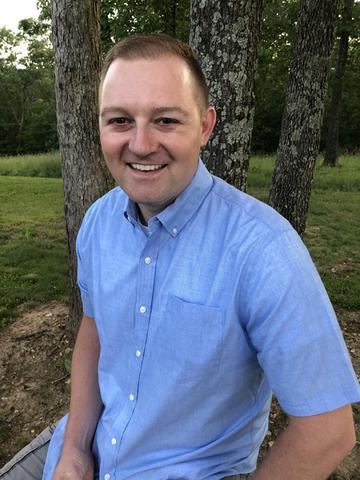Zachary Hamby
Zachary Hamby is an English teacher in rural Missouri. For the past sixteen years, he has taught a high school mythology course, which began as a simple teaching assignment but grew into a passion. He has written the Reaching Olympus series, the Mythology for Teens series, The Hero’s Guidebook, and Introduction to Mythology for Kids. He resides in the Ozarks with his wife, Rachel (also an English teacher), and their two children, Luke and Jane. For more information about Zachary visit his website www.creativeenglishteacher.com or contact him by email at zachary@creativeenglishteacher.com
Bio prepared by Ayelet Peer, Bar-Ilan University, ayelet.peer@gmail.com
Questionnaire
1. What drew you to writing/working with Classical Antiquity and what challenges did you face in selecting, representing, or adapting particular myths or stories?
I have been a high-school English teacher for 16 years, and right from the beginning a mythology elective has been a part of my course load. I quickly learned in order for my students to relate to ancient myths, I would need to adapt them into an appealing format. Creating my own mythology teaching materials led to the publication of a series of textbooks and my own website — through which I was approached by a publisher to write my first book of myths for children.
Selecting the myths was a difficult process simply because there are so many wonderful myths from which to choose, but I ended up selecting the myths which offer readers the most entertainment and the best life lessons. One of the best reasons to study myths is for the wisdom they teach. When writing a book for children, another challenge is making the myths age appropriate without losing the storytelling power of the originals.
2. Why do you think classical / ancient myths, history, and literature continue to resonate with young audiences?
Young readers are drawn to imaginative worlds, and that is what ancient myths provide. Studying mythology is like studying a map of the human imagination. Anything and everything can happen in a myth, and that makes them wondrous and timeless.
3. Do you have a background in classical education (Latin or Greek at school or classes at the University?) What sources are you using? Scholarly work? Wikipedia? Are there any books that made an impact on you in this respect?
Although I do not have a background in classical education, I have a small library of resources I have collected throughout the years. I have utmost respect for Edith Hamilton’s Mythology although she herself admits she did not re-tell the myths for the purpose of entertainment. Her approach is scholarly; she gives you a full, well-researched version of the myths, which is wonderful for authors like me, who get the job of adapting them with storytelling style!
4. Why did you choose these specific myths for your book? Did your personal teaching experience influence your choice of myths?
As I selected the myths for my book, I based my selections on two criteria: what they had to say and how well they said it. All of the stories in the book clearly reflect their cultures, and, just as importantly, they are good stories. My wish is that readers find them both educational and entertaining.
I was already familiar with many of the myths since I had taught them before in my classroom; however, some of them were new finds — which have since become part of my classroom curriculum, of course.
5. How concerned were you with ‘accuracy’ or ‘fidelity’ to the original?
Adapting ancient stories for modern audiences is a balancing act. On one side, I want to preserve fidelity to the original myth. After all, my version may be the only version someone ever reads, and I want to represent it accurately; however, on the other side, I want to make the story accessible and entertaining to modern readers because if they do not enjoy the myth, they won’t seek out more. Meeting both of these goals may seem like an impossibility (and I’m sure I haven’t always achieved it), but this is what guides my adaptation process.
6. Are you planning any further forays into classical material?
In just a few weeks I will be releasing a new book called World Mythology for Beginners, which features a selection of Greek and Roman myths among 50 myths from around the world. While the book is not written expressly for children, all of the stories could be enjoyed by children and adults alike. Another book of mine is The Hero’s Guidebook, which adapts the Hero’s Journey (Joseph Campbell’s monomyth) for kids using references to books, movies, and even video games.
For more information about Introduction to Mythology for Kids, visit my website, which includes free excerpts, by clicking here.
For more information about World Mythology for Beginners, visit this link.
For more information about The Hero’s Guidebook, visit this link.
Prepared by Ayelet Peer, Bar-Ilan University, ayelet.peer@gmail.com
Records in database:



